|
|
|
Sort Order |
|
|
|
Items / Page
|
|
|
|
|
|
|
| Srl | Item |
| 1 |
ID:
132887
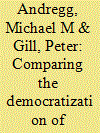

|
|
|
|
|
| Publication |
2014.
|
| Summary/Abstract |
This introductory article discusses some of the main themes that are contained within this collection originally delivered as papers to two conferences. There is brief consideration of some issues of method and major themes relating to the legacy of authoritarian regimes, the process of change and the current state of 'democracy' are identified. Continuing controversies and uncertainties around intelligence have important implications for democratic governance in many countries which must encourage more comparative work in this key area of intelligence studies.
|
|
|
|
|
|
|
|
|
|
|
|
|
|
|
|
| 2 |
ID:
095868
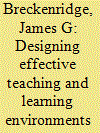

|
|
|
| 3 |
ID:
124002
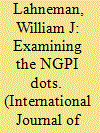

|
|
|
|
|
| Publication |
2013.
|
| Summary/Abstract |
National intelligence is still organized around the collection disciplines of the home agencies, not the joint mission. The importance of integrated, all-source analysis cannot be overstated. Without it, it is not possible to "connect the dots." No one component holds all the relevant information.
The 9/11 Commission Report, 22 July 2004, p. 408.
Although the 9/11 Commission Report 1 is over 400 pages long, its catchphrase about the Intelligence Community's (IC's) failure to "connect the dots" most succinctly captures one of the principal things that went wrong with the U.S government's efforts in general, and the IC's attempts in particular, to detect al-Qaeda's attack plans. General agreement prevails that the chance of detecting al-Qaeda's plans would have been improved if the IC had been able to pool, fuse, and analyze all of the relevant information about al-Qaeda's plans that various U.S. government agencies possessed prior to the attacks. As a result, the Commission strongly emphasized the need to improve information sharing across multiple IC and other government agencies to improve the IC's chances of detecting future attacks.
|
|
|
|
|
|
|
|
|
|
|
|
|
|
|
|
| 4 |
ID:
095874


|
|
|
| 5 |
ID:
134056
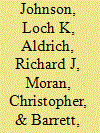

|
|
INS special forum: implications of the Snowden leaks
/ Johnson, Loch K; Aldrich, Richard J; Moran, Christopher,; Barrett, David M, Hastedt, Glenn, Jervis, Robert, Krieger, Wolfgang, McDermott, Rose, Omand, David, Phythian, Mark, Wark, Wesley K
|

|
|
|
|
| Publication |
2014.
|
| Summary/Abstract |
In 2013, the National Security Agency (NSA) in the United States became embroiled in controversy - again. Its questionable use of wiretaps (Operation MINARET) and its improper reading of international cables sent and received by Americans over decades (Operation SHAMROCK) had been revealed by the Church Committee in 1976; and in 2005 the New York Times disclosed that the NSA had been wiretapping selected American citizens without a warrant, contrary to the Foreign Intelligence Surveillance Act of 1978.
|
|
|
|
|
|
|
|
|
|
|
|
|
|
|
|
| 6 |
ID:
132890
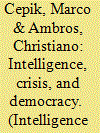

|
|
|
|
|
| Publication |
2014.
|
| Summary/Abstract |
This article analyzes why institutional crises are bound to happen and how they impact on national intelligence systems' development. Punctuated Equilibrium theory is reviewed and employed to explain one institutional crisis in each of Brazil, Colombia, South Africa, and India. In Brazil, the case study is the fall of the Brazilian Intelligence Agency (ABIN) director in 2008, following the Satiagraha operation conducted by the Federal Police Department (DPF). In Colombia, the 2009 wiretapping scandal known as chuzadas is examined. In South Africa, the investigation in Project Avani (2006-8) is reviewed. Finally, in India the case study is the intelligence crisis following the Mumbai terrorist attacks in 2008. We found that institutional crises are inevitable because there are tensions between security and democracy, both being co-evolutionary dimensions of successful contemporary state building. However, the impacts of such crises vary across the four cases pending on three variables: (1) degree of functional specialization inside the national intelligence system; (2) degree of external public control over the national intelligence system; (3) whether effectiveness, legitimacy or both were the main drivers of the crisis. Our analysis of the four case studies suggests that the amount of positive institutional change in the aftermath of an intelligence crisis is greater in countries with more functional specialization and stronger external control mechanisms.
|
|
|
|
|
|
|
|
|
|
|
|
|
|
|
|
| 7 |
ID:
116171
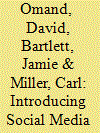

|
|
|
|
|
| Publication |
2012.
|
| Summary/Abstract |
We introduce the latest member of the intelligence family. Joining IMINT, HUMINT, SIGINT and others is 'SOCMINT' - social media intelligence. In an age of ubiquitous social media it is the responsibility of the security community to admit SOCMINT into the national intelligence framework, but only when two important tests are passed. First, that it rests on solid methodological bedrock of collection, evidence, verification, understanding and application. Second, that the moral hazard it entails can be legitimately managed. This article offers a framework for how this can be done.
|
|
|
|
|
|
|
|
|
|
|
|
|
|
|
|
| 8 |
ID:
093306
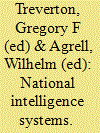

|
|
|
|
|
| Publication |
New York, Cambridge University Press, 2009.
|
| Description |
viii, 294p.
|
| Standard Number |
9780521518574
|
|
|
|
|
|
|
|
|
|
|
|
Copies: C:1/I:0,R:0,Q:0
Circulation
| Accession# | Call# | Current Location | Status | Policy | Location |
| 054702 | 327.12/TRE 054702 | Main | On Shelf | General | |
|
|
|
|
| 9 |
ID:
130227
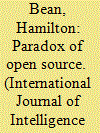

|
|
|
|
|
| Publication |
2014.
|
| Summary/Abstract |
The Associated Press (AP) reported on 8 November 2005 that, as part of post-11 September 2001 (9/11) United States intelligence reform efforts, the Director of National Intelligence (DNI) had established the Open Source Center (OSC). 1 Then-Director of the Central Intelligence Agency (CIA), former Florida congressman Porter Goss, described the OSC as a "major strategic initiative and commitment to the value we place on openly available information." 2 Challenging Goss's statement of commitment, the AP asserted that the OSC had actually been created, in part, in order to "elevate a brand of information [open source] that's long been a stepchild in the U.S. spy community." 3 Directed to "collect and study information that's publicly available around the world, including media reports, Internet postings and even T-shirts in Southeast Asia," 4 the OSC described itself as "the US Government's premier provider of foreign open source intelligence." 5 Visitors to the OpenSource.gov Website were told that the OSC offered authorized government employees and contractors "information on foreign political, military, economic, and technical issues beyond the usual media from an ever expanding universe of open sources
|
|
|
|
|
|
|
|
|
|
|
|
|
|
|
|
|
|
|
|
|